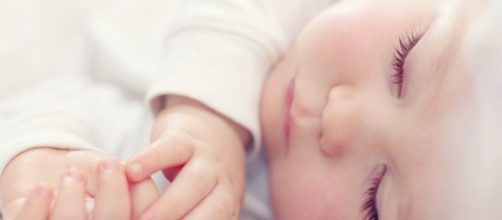A team of doctors in the UK have been given the go-ahead to create a baby from three parents - the first approval to be given after the UK became the first country to officially sanction the controversial treatment.
The technique goes one step beyond traditional IVF treatment and allows women who carry rare but serious genetic Cell disorders to give birth to healthy babies. It involves doing conventional IVF but then hosting the resulting DNA inside a healthy cell donated by another woman- which then grows up into the baby.
Treatment is 'life-changing'
The UK's Human Fertilisation and Embryo Authority gave approval in principle for the process late in 2016 and was widely reported at the time to be the first health regulator to do so - although a team of US doctors successfully tried the process in outside the jurisdiction of their regulators by doing it in Mexico. The result? A healthy baby boy was born in September 2016. Today the UK authority has announced at its annual conference that it has formally given the OK for a team to put it into use with the aim of creating a healthy child.
HFEA chair Sally Cheshire said the treatment could be "life-changing" for affected couples.
The approval was given to a team of doctors at the University of Newcastle who already have the first couple lined up.
The National Health Service has already announced it will make £8 million available over five years to fund the technique.
Fixing damaged cells
The main benefit is for would-be mothers who have defects in the cell mitochondria - part of the cell that helps generate energy. and helps a cell grow. This part of the cell contains a fragment of DNA that is, unusually, only inherited from the mother.
Some people with faulty mitochondria may never know it. Others suffer a wide range of disorders from poor co-ordination and diabetes to heart and kidney problems. MitoAction, a support group, says on its web site that as many as 1 in 4,000 people may have the condition which is progressive and has no cure.
The technique has its critics, however. It may involve destroying a healthy fertilised egg so that it can host the DNA of another. And although scientists think that mitochondria in cells have a purely mechanical function and the child's DNA can be swapped between them without problems, it won't be clear until the first children start growing whether there is any impact on the child.
A sign of the caution being exercised: the UK parliament changed the law to enable this kind of treatment back in 2015 and it is only today that the first treatment has got approval.

